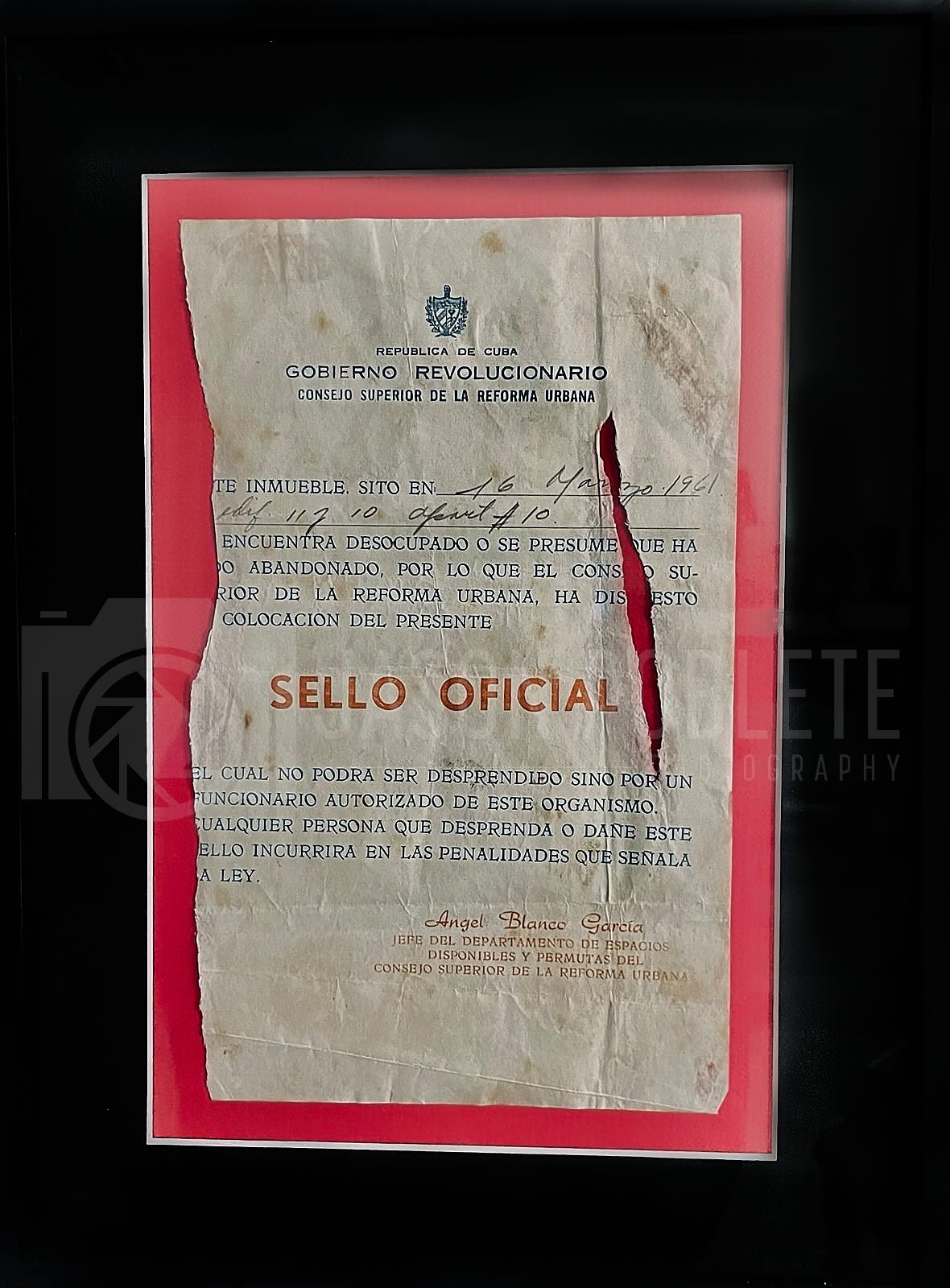The Digital Seal: Lessons from Cuba’s Property Confiscation for Digital Asset Regulation
In my office, a framed certificate hangs on the wall—not as a trophy but as a solemn reminder. It is torn, weathered, and stamped with the bold words “SELLO OFICIAL,” Spanish for “OFFICIAL SEAL.” Issued in 1961 by the Cuban revolutionary communist system, it marked my family’s property as revolutionary property, and they were not allowed to enter until they paid the tax.
This paper signaled the beginning of my ancestors’ journey into exile. They made a courageous choice; rather than submit, they resisted. They refused to pay a revolutionary tax imposed by the regime to retain control of their home. The refusal came at a significant cost: Their home was confiscated. Within months, they began their journey out of Cuba, ultimately finding refuge in the United States.
I was born in this country and am deeply grateful for the opportunities it has given my family. The U.S. offered them a second chance—a place to rebuild their lives. But the lessons of the past are never far from my mind, and as I watch governments around the world move to regulate Bitcoin and cryptocurrencies, I cannot help but see parallels between then and now.
Keep reading with a 7-day free trial
Subscribe to The Poblete Dispatches to keep reading this post and get 7 days of free access to the full post archives.


